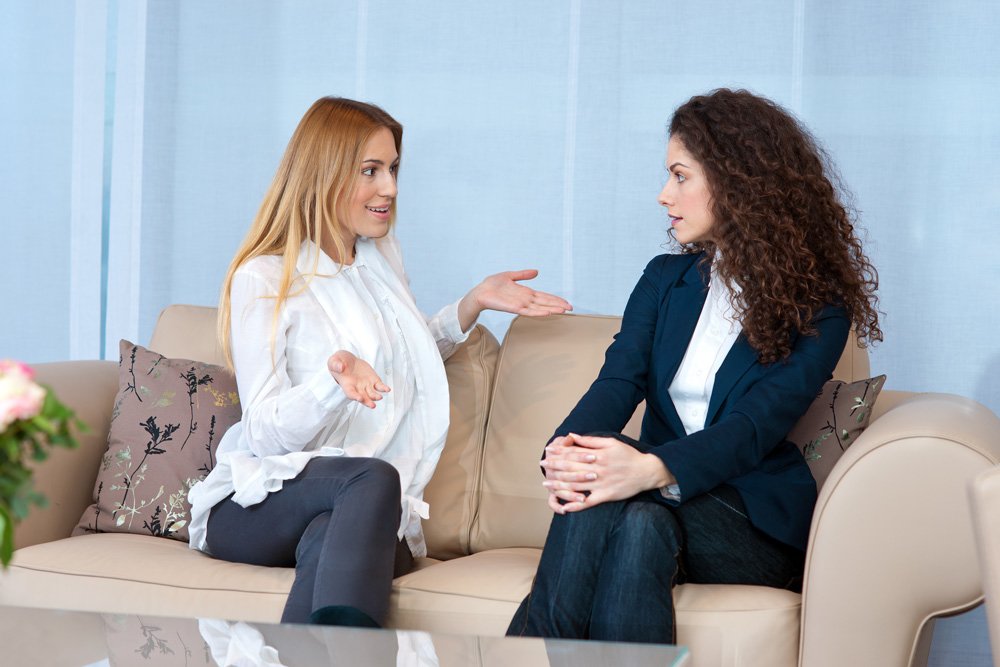The psychology of human relationships is often built on mutual assistance through advice and guidance. Advice is a valuable thing, and the person who gives it out left and right feels experienced and significant. The recipient of friendly advice also feels gratified by the attention he or she receives. Still, advice should be given with care, otherwise the effect can be just the opposite.
Even the most well-meaning advice can do harm. Because, unlike the recommendations of professionals, personal advice is not just a reasonable suggestion, it is also the psychology of the relationship. And in relationships it is not always easy to foresee all the nuances.
The effect of the advice habit on the psychology of human relationships
Giving specific advice in the form of “Do this!” is rather insecure. For example, when persistently persuading an acquaintance to change to a better-paying job, one sincerely expects words of gratitude and compliments about one’s insights. However, as a result, he may receive neither, since his friend did not like the work. And in this, of course, the advisor is to blame, even though he acted with the best of intentions.
Why does this happen? The reason is that human psychology is an individual concept, i.e. everyone has his own needs. And confidence of some characters that they know well the needs and desires of other people often turns out to be erroneous, so it is hardly worth giving such categorical advice to others. Even if he likes it and will be perceived at first as a sincere support and desire to help.
The psychology of human communication is such that probably everyone at least once in his life turned to someone for help in solving difficult problems. And probably everyone at least once has given advice to someone. Sometimes advice is really valuable, and as a result, people want to advise and receive similar help from others again and again.
In the language of the psychologist, there is a displacement of motive towards the goal. The person already asks for help not with the goal of knowing how to solve a problem, but simply to get advice. In other words, he or she has this psychology of communication – he or she needs the attention and support of others.
Such behavior is characteristic of people who experienced a lack of attention from adults in childhood. They were taught from an early age that they are already adults and should decide for themselves what to do, strongly believing that such actions bring up independence in children.
People who lacked care and attention in childhood try to make up for this deficit in adult life relationships. They ask for advice from colleagues, friends, neighbors, and acquaintances; such people more often than others turn to a psychologist. And as close friends they prefer to see those who do not like to use advice, but gladly give it, they are attracted to the psychology of a confident and authoritative person for whom recognition and respect of others is important.
What are the negative aspects of this psychology of communication? Dependence on the habit of taking the advice of others does not give a person the opportunity to develop. People who both accept and give advice become accustomed to receiving emotions in the only habitual way.
The first will never become independent and learn to make his or her own decisions, and the second will continue to raise his or her self-esteem at the expense of others.
Psychology of Communication: How to Give the Right Advice?

You don’t have to give advice too often.
Practice shows that if you give out advice left and right, there will be fewer and fewer people willing to listen to it. And if you constantly ask for advice from others, the latter will soon stop answering and will perceive it as a special psychology of relations, which is not to everyone’s liking.
You have to think it over before you give advice
Advice given immediately is often taken as duty. In addition, they do not provide an opportunity to discuss all the nuances of the problem. Good advice can follow only after careful consideration of all options for solving the problem.
Advice should be vague and ambiguous
Direct advice binds both the party giving it and the party taking it. Good advice is considered to be that which implies room for one’s own reflection and at the same time contains useful information. It can be expressed in the form of a story: “A friend of mine also wanted to have her lips enlarged, and now she…”
Advice can also be given by resorting to proverbs and sayings
It is also acceptable to use allegories, fairy tales, some well-known stories for this purpose. Such advice is very valuable because it affects human psychology not directly, but through the subconsciousness. Innuendoes and hints help one to see the problem more distinctly, with all the nuances and even to foresee the possible consequences. Man suddenly understands himself how to act and feels a sense of gratitude for the wisdom of the one who so timely led him to this idea. This is truly good advice.
Human psychology: the right attitude to advice

One should not trust too much in other people’s opinions and unquestioningly follow all advice and recommendations, even if parents and other close people act as advisors. This applies both to work, to the psychology of relationships in personal life, and to the issues of your own health. Undoubtedly, parents will not advise bad things. But, first and foremost, it is still their opinion, and not an unquestioning instruction to execute.
How often people with serious illnesses, not wanting to go to the doctor, use useless advice from friends, aggravating an already difficult situation. As for interpersonal relationships, do not forget that independence has positive aspects such as self-confidence and high self-esteem. Therefore, to begin with, it is necessary to give up at least one piece of advice and make an independent decision.
Some people hardly ever use other people’s advice; it only helps them to organize their thoughts and gives them information to think about. Wanting to listen to as many opinions as possible, such people consult everyone who agrees to listen to them – a neighbor, a child’s teacher, even a fellow traveler on public transportation.
This is the wrong position, because in this case, there is a high probability of a spontaneous, emotion-based choice. Therefore, after talking to everyone, you should pause and try not to think about the problem for a while. After that it will be easier to make a decision.
Sometimes advice is the last hope to resolve a difficult issue. A person asks for help in solving an issue only in difficult situations. When he is doing well, hints and recommendations only irritate him and he doesn’t even hide it.
Such people should learn to be more tolerant of the opinion of others, accepting with gratitude their advice, because no matter what, they are sincerely trying to help and make every effort to do so. Otherwise, the next time you have to ask for help again, you can get rejected.
Sometimes the psychology of relations with others is such that a person feels as if with advice and recommendations they are trying to humiliate him and convince him of his own inadequacy. Therefore, he/she perceives everything negatively, sometimes even showing rudeness in relation to advisors. It is worth changing your attitude to the advice and trying to see in them only good intentions.
When a person is configured positively, he begins to extract from the words of others a lot of useful to himself.
But we should not forget that an advisor can also make mistakes, and he is not always able to give absolutely correct advice. Therefore, in order to follow the next recommendation, it is still necessary to listen to your inner voice, only in this case it is possible to find the right decision. And when choosing an object for consultation, it is necessary to be sure in the competence of the adviser in this matter.
The articles on this site are for information purposes only. The site administrators are not responsible for attempting to apply any recipe, advice or diet, nor do they guarantee that the information provided will help or harm you personally. Be cautious and always consult a doctor or nutritionist!
*All products recommended by thefirstdoc.com are selected by our editorial team. Some of our articles include affiliate links. If you buy something through one of these links, you help us earn a small commission from the seller and thus support the writing of useful and quality articles.





